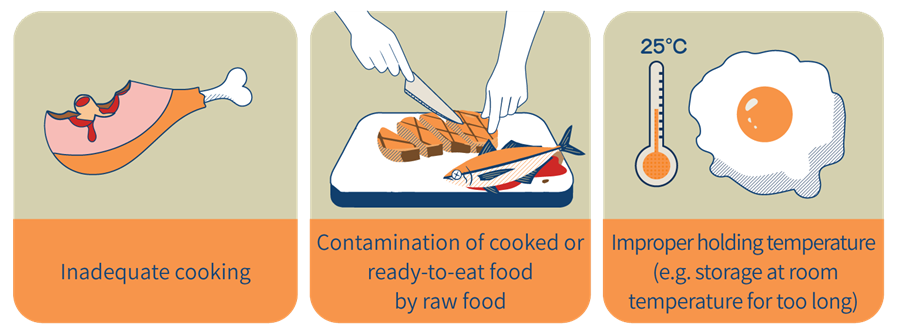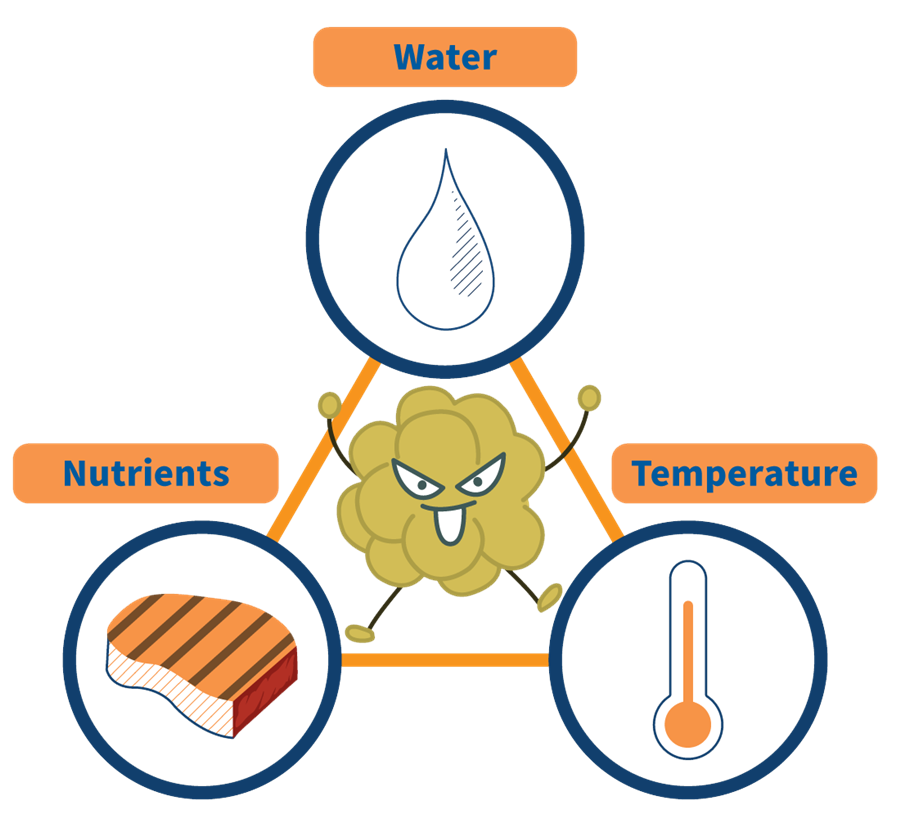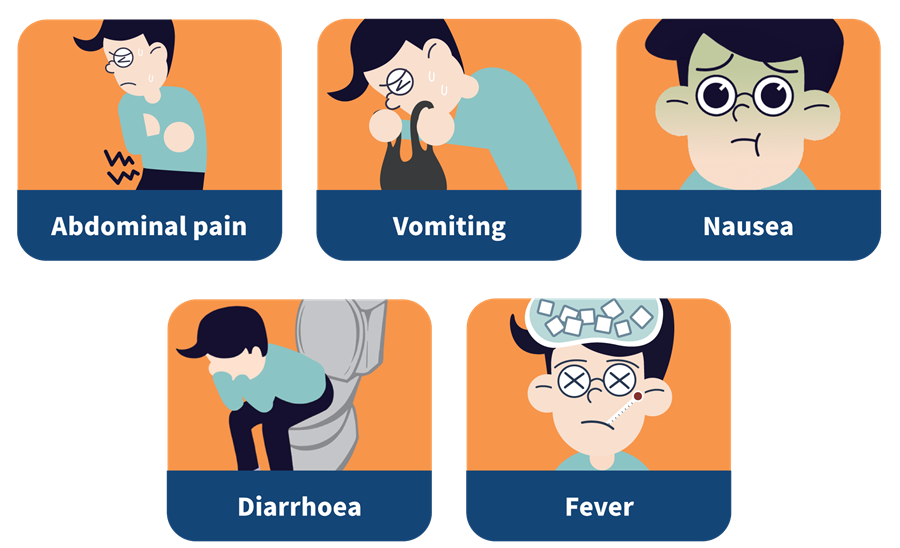Bacteria and viruses are the most common causative agents of foodborne diseases related to food premises and food business in Hong Kong, and the top three causes are:
- Inadequate cooking
- Contamination of cooked or ready-to-eat food by raw food
- Improper holding temperature (e.g. storage at room temperature for too long)

Bacteria
Under ideal conditions, bacteria are capable of doubling in number every 20 minutes on average as long as water and nutrients with favorable temperature are provided which facilitate the survival and growth of bacteria.

 |
Be careful of bacteria! Bacteria are microorganisms which have a great impact on food safety because of their high productivity. They can form millions of bacterial colonies within a few hours, resulting in food poisoning. Most foodborne diseases demonstrate seasonal changes. In Hong Kong, food poisoning outbreaks are more common in summer (June to September) and winter (December to February). Common bacteria causing food poisoning including Salmonella, Vibrio parahaemolyticus and Staphylococcus aureus grow more readily in summer. Norovirus is another common causative agent which is more active in winter time. |
Click here for more information about foodborne bacteria.
Click here for more information about viruses.
Common symptoms of foodborne diseases
Foodborne diseases tend to share the following symptoms:
- Abdominal pain
- Vomiting
- Nausea
- Diarrhoea
- Fever
